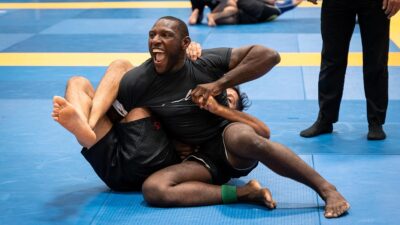Boxing isn’t merely a physical contest; it’s a profound psychological battle that often decides the victor before the opening bell rings. To understand what distinguishes a champion from mere contenders, one must delve deep into the psychological aspects that shape these fighters both in and out of the ring.
The Mental Game: More Than Just Muscle
1. Confidence Building
A boxer’s mindset is critical. Confidence plays a vital role in a fighter’s ability to perform under pressure. Champions often exhibit an unwavering belief in their skills, which stems from rigorous training and positive reinforcement. This self-assurance enables them to absorb blows, stay composed, and execute strategies effectively even in the most hostile environments, such as a packed arena.
2. Visualization and Mental Rehearsal
Many successful boxers use visualization techniques to mentally prepare for fights. By imagining themselves executing combinations, dodging punches, and ultimately winning, they create a mental blueprint that can boost their performance. This method not only reduces anxiety but also conditions the brain to respond optimally during actual bouts.
3. Resilience and Adaptability
In boxing, the ability to bounce back from adversity is essential. A resilient boxer learns to accept defeat and transform it into a motivational catalyst. Champions often recount past losses as pivotal moments that led to their growth—both mentally and physically. Adaptability is also key; being able to adjust strategies mid-fight based on an opponent’s movements or strategies is what often distinguishes the greats from the good.
Psychological Strategies in the Ring
1. Controlled Aggression
Fighters need to balance aggression with control. Getting too caught up in emotional fervor can lead to reckless behaviors that expose them to counter-attacks. Champions understand the importance of channeling their aggression into calculated movements and strikes while maintaining focus on their game plan.
2. Reading Opponents
The ability to read an opponent’s body language and patterns is a unique psychological skill that champions possess. By anticipating an opponent’s moves, great boxers can exploit weaknesses effectively. This skill is honed through both experience and intuition—learning to recognize subtle tells that reveal what a fighter might do next.
3. Defensive Psychology
While offense often captures attention, the psychology of defense is equally crucial. Champions train their minds to remain calm under pressure, allowing them to react instinctively. This defense-centric approach enables fighters to absorb punches and counterattack with precision, turning the tide of a match when it seems bleak.
The Role of Support Systems
Behind every champion is a robust support system that includes trainers, family, and sports psychologists. Mental coaches specialize in helping athletes deal with the psychological pressures of competition. They provide tools for stress management, concentration, and emotional regulation, ensuring fighters remain in the right frame of mind to perform optimally.
The Weight of Expectations
The mental load of fame and expectation can also weigh heavily on champions. As public figures, they face an immense amount of scrutiny, which can lead to anxiety and performance pressure. Learning to manage this external pressure is an integral part of the psychological toolkit that champions develop. Many boxers embrace mindfulness and meditation practices to help ground them amid external chaos, aiding in maintaining focus and composure.
Conclusion
Understanding the psychology behind boxing gives us a deeper insight into what it takes to be a champion. It’s not just the physical prowess or technical skills that count; it’s the mental fortitude, adaptability, and emotional control that define true greatness in the ring. As we watch these warriors face off, we are reminded that the real battle often occurs long before the fight begins—as they navigate the intricate landscapes of their minds. With a robust mental game, champions not only conquer their opponents but also emerge victorious over their inner demons.



